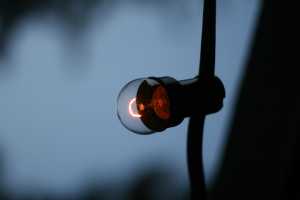07 Feb Daytime Light Important For Brain Health
MedicalResearch.com Interview with:
Dr. Lily Yan MD PhD
Department of Psychology & Neuroscience Program
Michigan State University
East Lansing, MI 48824
MedicalResearch.com: What is the background for this study? What are the main findings?
- The effects of light on cognitive function have been well-documented in human studies, with brighter illumination associated with better cognitive performance. However, the underlying neural mechanisms are not well understood.
- In this study, we explored the mechanisms of how light modulates spatial learning and memory, using diurnal Nile grass rats. In contrast to most laboratory animals that are active at night and fall asleep following light exposure, these animals are active during the day, thus an ideal model for understanding the effects of light on humans.
- When the animals were housed in dim light during the day, mimicking the cloudy days or typical indoor lighting, the animals had a ~30% reduction in the dendritic spines, which make the connection between brain cells, within the hippocampus, a brain region critical for learning and memory. Animals housed in dim light also performed poorly in a water maze, compared to those housed in bright light.
- When the animals that had been in dim light were then housed in bright light for 4 weeks, the connections in their hippocampus and performance in the water maze recovered fully.
 MedicalResearch.com: What should readers take away from your report?
MedicalResearch.com: What should readers take away from your report?
- Environmental lighting condition can impact brain functions. Sufficient amount of light exposure during the day is important for keeping the connections in the brain and maintain optimal cognitive function.
- In the United States, a majority of the population spends ~90% of their time indoors, where the lighting is less bright than outdoors. Even in optimal environments, light deficiency can occur as a result of eye disease or aging.
- A better understanding of how light modulates brain functions will contribute to identify risk factors for cognitive decline and to the development of more effective prevention of cognitive impairments in clinical populations.
MedicalResearch.com: What recommendations do you have for future research as a result of this work?
- The current work focused on male animals. We are currently examining females to investigate the mechanisms that are shared or are specific for males and females.
- Another line of research is to identify the neural pathways mediating the effects of light to the hippocampus.
Disclosures: This study is funded by National Institutes of Health (NIH). The content is solely the responsibility of the authors and does not necessarily represent the official views of funding agencies.
Citations:
Joel E. Soler, Alfred J. Robison, Antonio A. Núñez, Lily Yan. Light modulates hippocampal function and spatial learning in a diurnal rodent species: A study using male nile grass rat (Arvicanthis niloticus). Hippocampus, 2017; DOI: 10.1002/hipo.22822
[wysija_form id=”3″]
The information on MedicalResearch.com is provided for educational purposes only, and is in no way intended to diagnose, cure, or treat any medical or other condition. Always seek the advice of your physician or other qualified health and ask your doctor any questions you may have regarding a medical condition. In addition to all other limitations and disclaimers in this agreement, service provider and its third party providers disclaim any liability or loss in connection with the content provided on this website.
Last Updated on February 7, 2018 by Marie Benz MD FAAD

